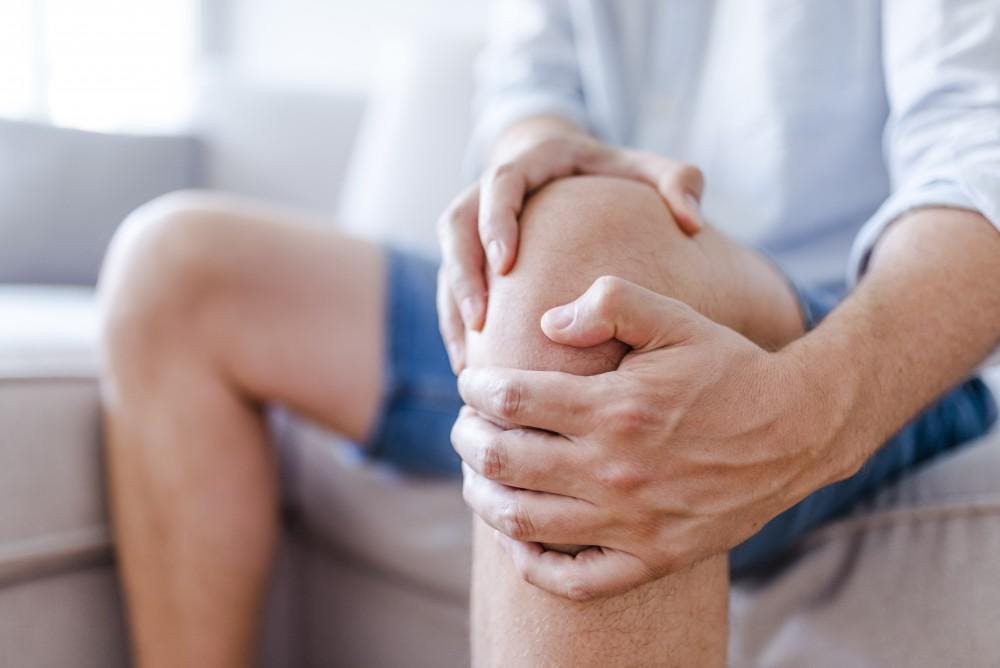When Should I See a Doctor for Knee Pain?

Your knees are at work all day long, bending, lifting, and supporting your body through a myriad of tasks and activities. Still, as important as they are, you probably don’t give your knees much thought — until they start hurting.
Knee pain is a common medical complaint, and while some pain resolves on its own with a little TLC, other knee pain is a sign of a serious issue that needs prompt medical attention. At Spruce Health Group, we help patients, get the care they need to relieve their knee pain and prevent more serious problems from developing. Here’s how to tell if your knee pain needs to be evaluated by our team.
What causes knee pain?
Your knee is a very complex joint, composed of bones, ligaments, tendons, muscles, and other tissues. An injury to any of these structures can wind up causing knee pain. The key is to understand when those injuries are serious enough to warrant a doctor’s visit and when you can treat them at home with a little TLC.
Knee pain can be either chronic or acute. With chronic pain, symptoms tend to develop slowly, but they stick around for a long time and often get worse. Most chronic pain is due to wear and tear inside the joint. Acute knee pain develops rapidly, usually as the result of a fall or other accident.
Osteoarthritis is one of the most common causes of chronic knee pain, mostly affecting older people, those who are overweight or obese, and active athletes who put a lot of repetitive strain on their knees. With osteoarthritis, cartilage denigration inside the joint increases inflammation, resulting in pain, stiffness, and sometimes swelling. Muscle strain is another common cause of chronic knee pain.
Acute knee pain usually follows a traumatic injury to the joint. Causes of acute knee pain include:
- Tendon damage
- Sprains
- Bursitis
- Cartilage tears
- Fractures
- Torn ligaments
Regardless of whether your knee pain is chronic or acute, it’s important to know whether you need immediate medical care or whether it’s okay to take a little time to see if your symptoms improve or resolve on their own.
When should you see the doctor for knee pain?
Any type of knee pain — chronic or acute, mild or severe — is an indication that something’s wrong with your knee, so you should never ignore it. You should definitely call our office right away if you have:
- Significant swelling around your knee
- A grinding or popping sensation or noise when moving your knee
- Difficulty supporting your weight on your knee
- Problems with walking or other normal movements
- Difficulty bending or straightening your knee
- Pain accompanied by fever
- Significant redness or warmth around your knee joint
- Any type of deformity around the joint
If your knee pain symptoms are less severe, you might decide to apply some home remedies and TLC to see if they improve over the next 24 hours. Some types of knee pain, like pain from a minor muscle strain, respond well to RICE therapy. RICE stands for rest, ice, compression, and elevation, and it’s pretty much just what it sounds like:
- Rest your knee as much as possible
- Apply ice regularly to the joint and the area around it
- Wrap the knee in an elastic bandage (but not too tightly)
- Elevate your knee while you’re resting
These steps help reduce swelling in your knee to help it heal faster.
Suppose you use these steps and your knee symptoms don’t resolve — maybe they even get worse. In that case, it’s important to call our office right away so we can schedule an evaluation. Delaying care doesn’t just mean you’ll have to deal with your symptoms longer — it can also allow an underlying problem to worsen.
Get the care your knees need
Even when your knee symptoms seem relatively mild, it can be a little nerve-racking just waiting a day or two to see if they resolve. If that’s the case, don’t hesitate to call. When it comes to your joint function and your overall health and wellness, it’s always better to err on the safe side. We offer lots of treatment options, like viscoelastic supplementation, stem cell therapy, PRP injections, and more, so we can tailor a treatment program just for you.
Putting off medical care for any type of joint problem can cause more serious problems in the future — problems that can interfere with your mobility and take a toll on your quality of life. As a top-ranked orthopedic practice in Colorado, we’re dedicated to helping you get the best care for optimal recovery. If you’re having knee pain, contact us to request an appointment today.
Categories: General, Healthy Knee Protocol, Total Joint Care
